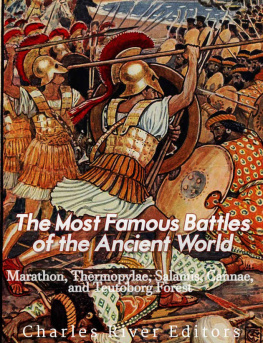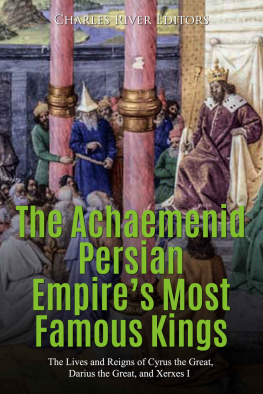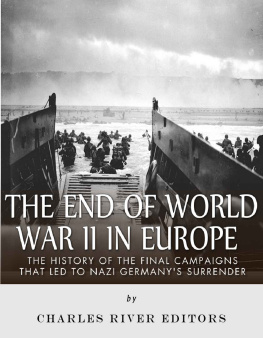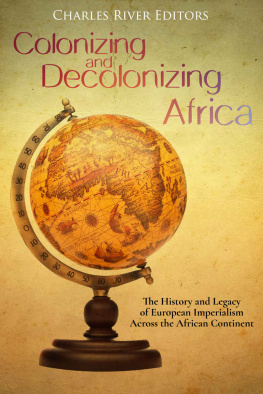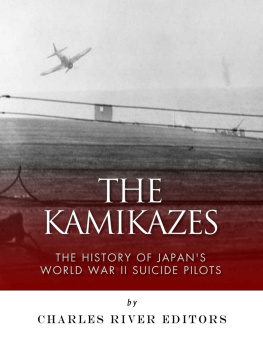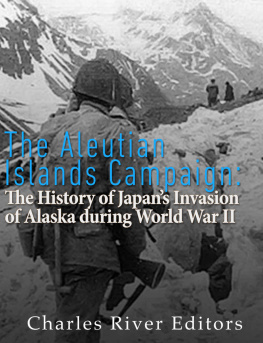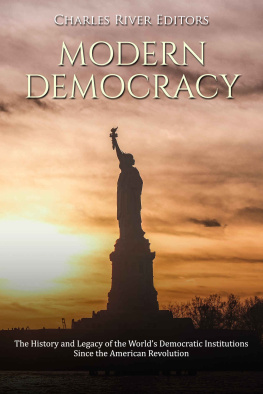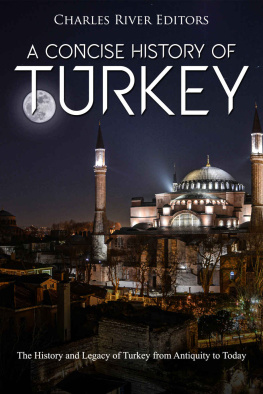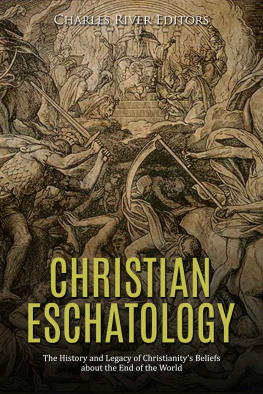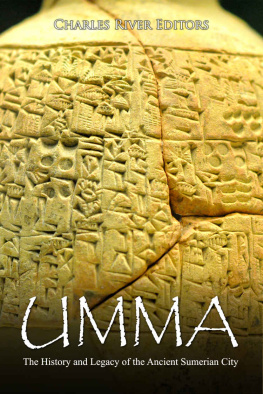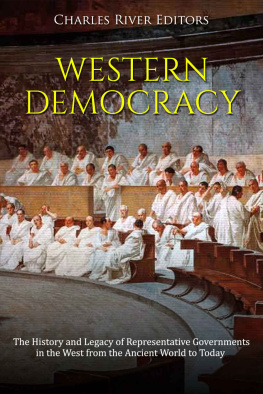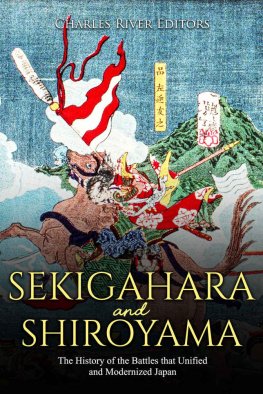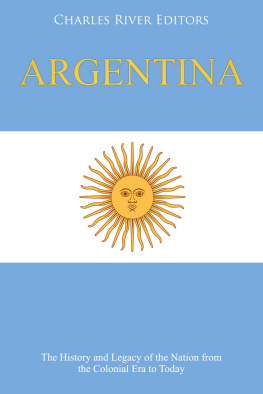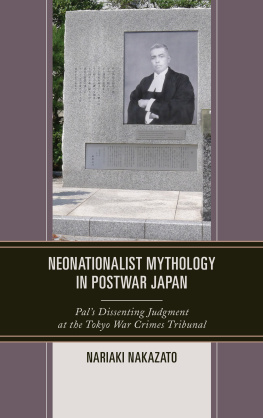Charles River Editors - The Tokyo War Crimes Tribunal: The History and Legacy of the War Crimes Trials against Japan after World War II
Here you can read online Charles River Editors - The Tokyo War Crimes Tribunal: The History and Legacy of the War Crimes Trials against Japan after World War II full text of the book (entire story) in english for free. Download pdf and epub, get meaning, cover and reviews about this ebook. year: 2018, publisher: CreateSpace Independent Publishing Platform, genre: History. Description of the work, (preface) as well as reviews are available. Best literature library LitArk.com created for fans of good reading and offers a wide selection of genres:
Romance novel
Science fiction
Adventure
Detective
Science
History
Home and family
Prose
Art
Politics
Computer
Non-fiction
Religion
Business
Children
Humor
Choose a favorite category and find really read worthwhile books. Enjoy immersion in the world of imagination, feel the emotions of the characters or learn something new for yourself, make an fascinating discovery.

- Book:The Tokyo War Crimes Tribunal: The History and Legacy of the War Crimes Trials against Japan after World War II
- Author:
- Publisher:CreateSpace Independent Publishing Platform
- Genre:
- Year:2018
- Rating:3 / 5
- Favourites:Add to favourites
- Your mark:
- 60
- 1
- 2
- 3
- 4
- 5
The Tokyo War Crimes Tribunal: The History and Legacy of the War Crimes Trials against Japan after World War II: summary, description and annotation
We offer to read an annotation, description, summary or preface (depends on what the author of the book "The Tokyo War Crimes Tribunal: The History and Legacy of the War Crimes Trials against Japan after World War II" wrote himself). If you haven't found the necessary information about the book — write in the comments, we will try to find it.
The Tokyo War Crimes Tribunal: The History and Legacy of the War Crimes Trials against Japan after World War II — read online for free the complete book (whole text) full work
Below is the text of the book, divided by pages. System saving the place of the last page read, allows you to conveniently read the book "The Tokyo War Crimes Tribunal: The History and Legacy of the War Crimes Trials against Japan after World War II" online for free, without having to search again every time where you left off. Put a bookmark, and you can go to the page where you finished reading at any time.
Font size:
Interval:
Bookmark:
By Charles River Editors

The site of the trials in Tokyo

Charles River Editors provides superior editing and original writing services across the digital publishing industry, with the expertise to create digital content for publishers across a vast range of subject matter. In addition to providing original digital content for third party publishers, we also republish civilizations greatest literary works, bringing them to new generations of readers via ebooks.
Sign up here to receive updates about free books as we publish them , and visit Our Kindle Author Page to browse todays free promotions and our most recently published Kindle titles.

A picture of the tribunal
The Tokyo War Crimes Tribunal
There were, I suppose, three possible courses: to let the atrocities which had been committed go unpunished; to put the perpetrators to death or punish them by executive action; or to try them. Which was it to be? Was it possible to let such atrocities go unpunished? Could France, could Russia, could Holland, Belgium, Norway, Czechoslovakia, Poland or Yugoslavia be expected to consent to such a course? ... It will be remembered that after the first world war alleged criminals were handed over to be tried by Germany, and what a farce that was! The majority got off and such sentences as were inflicted were derisory and were soon remitted. Baron Geoffrey Lawrence, December 1946
At the end of World War II, the world was faced with some sobering statistics. With over 50,000,000 deaths when both military and civilian losses had been accounted for, the death toll was devastating, and for many of those who lived in countries that had been ravaged by war, hunger and financial strain had become parts of daily life. Furthermore, beyond the physical damage was the growing knowledge of the atrocities that had been committed both before and during the war. In fact, the Allies were discussing how to dole out justice for Axis war crimes as early as 1943, and once the war was over, the victorious Allies sought to address every aspect of it to both punish war criminals and attempt to ensure that there was never a conflict like it again.
The judgment of the German leadership and its role in the death, destruction, and demoralization they had brought to the world would take place at Nuremberg. The Nuremberg Trials were a series of 13 proceedings held under the authority of the International Military Tribunal between November 1945 and June 1948, but the trial most associated with Nuremberg is the first trial, in which eight judges appointed by Britain, the United States, the Soviet Union, and France deliberated over the guilt or innocence of 22 men identified as significant leaders of the Nazi cause. This trial took place between November 20, 1945 and August 31, 1946. Later trials included other Germans who held what were considered to be position of power- doctors, businessman, or lower-level functionaries whose positions of influence gave them, in the eyes of the Allies, increased responsibility for their actions. Though almost every person convicted in the 13 Nuremberg Trials was male, there was also a female physician convicted at the doctors trial.
Though they are now mostly forgotten, the International Military Tribunal for the Far East was the Pacific Theaters equivalent. Known as the Tokyo Trials, 11 countries contributed prosecutors as 28 Japanese faced trials for crimes against humanity. The trials were politically charged from the start, considering the end of World War II, the beginning of the Cold War, and the American occupation of Japan, and in many respects, the Tokyo Trials were part of a new era in American-Japanese relations.
Though not as notorious as Nazi crimes such as the Holocaust, the Allies were painfully aware of various Japanese war crimes during the war. Perhaps the best known is the Bataan Death March, during which an estimated 9,000 Filipino and 1,000 American prisoners died on the march alone. For the Pacific Theater as a whole, 37% of all prisoners of war died while in captivity, and after the war, a war crimes tribunal found the Japanese officers in charge of prisoner-of-war operations in the Philippines guilty. Most notably, General Masaharu Homma was found guilty of crimes against humanity, and on April 3, 1946, he was executed by firing squad near Manila. Several other Japanese military officials were also found guilty by the tribunal and executed for their roles in the treatment of American and Filipino prisoners of war.
Of course, the Nuremberg Trials are better known than their Asian counterpart, and the war crimes trials have far different legacies, because while Germany internalized the lessons of the Nazi war crimes, an argument could be made that Japan did not, or at least not to the same extent. It would take generations for the Japanese government to fully acknowledge the atrocities the nation committed in their treatment of prisoners of war during World War II. Most recently, in 2010, the government invited former prisoners of war and their descendants to visit Japan in what was called the Japanese/American POW Friendship Program. To the veterans who made the trip, Japanese foreign minister Katsuya Okada formally apologized for the Japanese treatment of prisoners of war during World War II.
The Tokyo War Crimes Tribunal: The History and Legacy of the War Crimes Trials against Japan after World War II chronicles the history of the trials from their conception to their completion. Along with pictures of important people, places, and events, you will learn about the trials like never before.
On August 14, 1945, five days after an atomic bomb was dropped on Nagasaki, Japan's Emperor Hirohito offered a capitulation and unconditional surrender. Despite some initial protest from Japanese militarists, the war was now definitely over. Hirohito cited the unprecedented nuclear attack as the primary reason for surrender, though a Soviet invasion was also a significant factor.
World War II was now officially over on both fronts. On August 28, the Supreme Allied occupation of Japan began, and the official surrender ceremony was completed on the USS Missouri on September 2. Interestingly, the official end of the state of war between the U.S. and Japan, however, did not come until 1952, with the Treaty of San Francisco being signed on April 28 of that year.
The trial first convened on April 29, 1946, but the seeds for the trials came with various declarations written during and at the end of World War II. As the leaders of the Allies met for the Potsdam Conference weeks before Japan surrendered, they managed to agree on the need for an international war crimes tribunal to bring the perpetrators of Nazi mass murders to justice. The British first Churchill, and then Attlee carrying on his policy argued for Nuremberg as the site of the trials. The symbolic intention would, the Allies hoped, impress itself on the German mind. The Nazi Party's infamous rallies occurred in that city during the years of the Third Reich, and the Allied leaders all agreed to that venue on July 31, 1945.
Font size:
Interval:
Bookmark:
Similar books «The Tokyo War Crimes Tribunal: The History and Legacy of the War Crimes Trials against Japan after World War II»
Look at similar books to The Tokyo War Crimes Tribunal: The History and Legacy of the War Crimes Trials against Japan after World War II. We have selected literature similar in name and meaning in the hope of providing readers with more options to find new, interesting, not yet read works.
Discussion, reviews of the book The Tokyo War Crimes Tribunal: The History and Legacy of the War Crimes Trials against Japan after World War II and just readers' own opinions. Leave your comments, write what you think about the work, its meaning or the main characters. Specify what exactly you liked and what you didn't like, and why you think so.

